Ocean sustainability: ‘Many knowledges are needed’
08 June 2022 | Story Helen Swingler. Read time 9 min.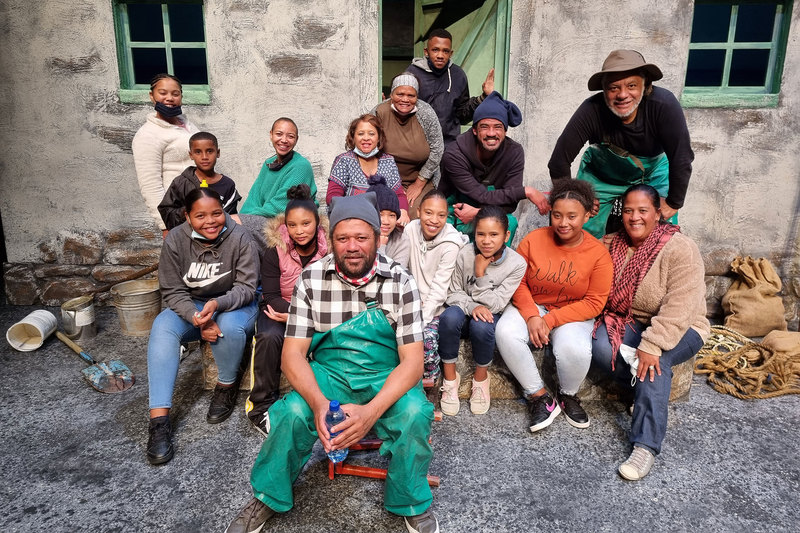
No single knowledge system can fully understand the effects of climate change on the world’s oceans and the impact on humanity’s complex relationship with the sea. Understanding the oceans and how people relate to them is framed by contexts of nationhood, language and background, said the University of Cape Town’s (UCT) Professor Marcello Vichi. “Many knowledges are needed.”
Professor Vichi was speaking on behalf of UCT’s Marine and Antarctic Research Centre for Innovation and Sustainability (MARIS). MARIS is an interdisciplinary research centre that involves multiple departments and faculties within UCT.
“Diverse perspectives will not only build holistic ocean knowledges but help to identify actions towards that goal,” he said.
Vichi, who is the director of MARIS, was speaking at the opening of the recent conference, “Ocean Cultures: Relating to our oceans across nations, languages and background” at the UCT Graduate School of Business.
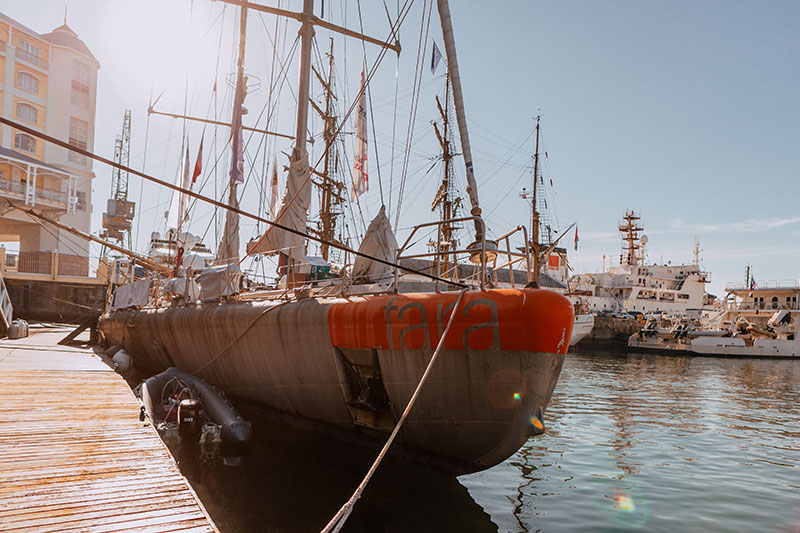
The conference was linked to another big event at the Cape Town V&A Waterfront, the visit by the Tara, a “floating laboratory” devoted to serving ocean science and knowledge sharing. On its current two-year Microbiome Mission, the Tara will travel about 70 000 km in the South Atlantic, with stopovers in South America, Antarctica and Africa.
The initiative is supported by the Tara Ocean Foundation and is part of the European AtlantECO project. AtlantECO is funded through the European Union’s All Atlantic Ocean Research Flagship and works in concert with sister projects TRIATLAS, Mission Atlantic and iAtlantic. These projects develop and apply a novel, unifying framework that will provide knowledge-based resources to better understand the Atlantic Ocean and its ecosystem services, and in that way to contribute to management for improved sustainability.
Along with 86 other projects across the globe, the Tara’s Microbiome Mission has been endorsed by the UNESCO Oceanographic Commission for contributing to the UN Decade of Ocean Science for Sustainable Development.
While the vessel was docked in Cape Town, the Tara Ocean Foundation teamed up with AtlantECO’s partners in South Africa (UCT, the University of Pretoria and the Council for Scientific and Industrial Research) to present the Ocean Culture conference as well as workshops, panel discussions at the Two Oceans Aquarium, and tours of the vessel.
Holistic knowledge
At the conference, three keynote speakers shared their work in southern Africa: the Two Oceans Aquarium’s Russell Stevens on marine sciences education, Professor Rose Boswell of Nelson Mandela University on the sea and cultural heritage, and UCT’s Professor Astrid Jarre on integrated approaches for sustainability.
Professor Jarre’s address was titled “Bringing it all together: Sustainability research including humanities, social and nature sciences and fishing communities”. Jarre highlighted how science and art can work together to tap into and communicate with local fishing communities that are threatened by the effects of climate change on their livelihoods, resilience, and social fabric.
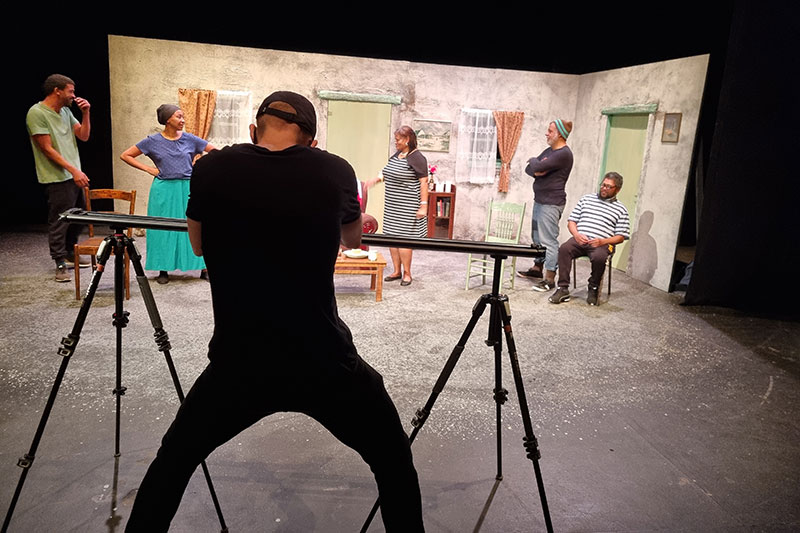
Jarre holds the Department of Science and Innovation / National Research Foundation’s South African Research Chair in Marine Ecology & Fisheries and is the co-leader of MARIS.
Her address focused on her SARChI chair-linked Southern Cape Interdisciplinary Fisheries Research (SCIFR) project. SCIFR spotlights an under-researched part of the Agulhas Bank’s social-ecological system; the fishing communities between Witsand and Mossel Bay.
This area is part southern Benguela system, where upwelling fuels the growth of phytoplankton resulting in productive fisheries. But over the past 25 years, local fisheries have faced several challenges linked to changes in the Benguela system’s human and biophysical spheres.
“We know that certain areas are warming more rapidly than others and on the south coast, in this area, we have documented long-term, ongoing ecosystem scale change,” said Jarre.
“Natural and human social systems are not mutually exclusive and can’t be separated in mitigation, adaptation and conservation efforts.”
This includes shifts in the distribution of commercial marine resources and increasing wind and temperature variability. Building understanding and resilience among these communities requires working with multiple bodies of knowledge, employing several methodologies – and collaboratively tapping the expertise of these ocean-dependent stakeholders. With varying levels of formal education, the community exists in contexts where their day-to-day decision-making and long-term sustainability are shaped by many uncertainties.
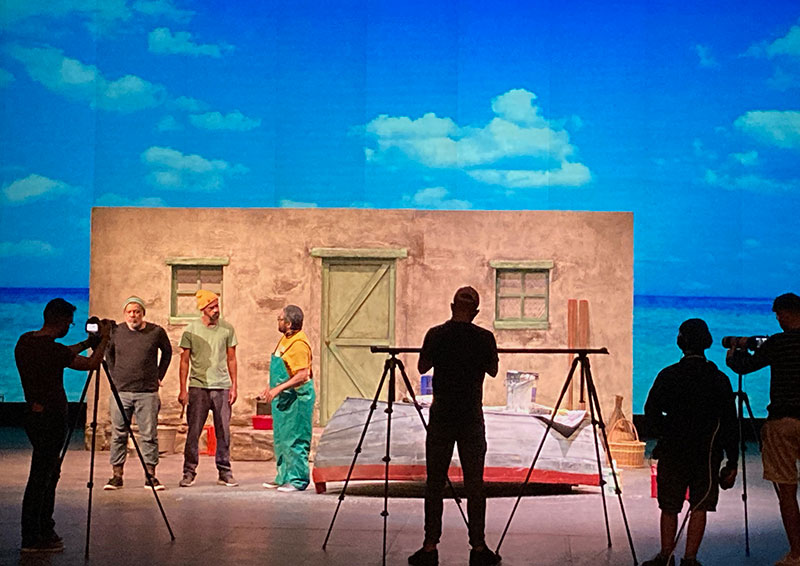
“Natural and human social systems are not mutually exclusive and can’t be separated in mitigation, adaptation and conservation efforts,” said Jarre. “Failures to recognise that the oceans form an integrated social-ecological system with many links have created a situation where ocean resources are depleted and communities dependent on the sea for their livelihoods are affected … We can jump up and down about climate change but in the end, must not forget that people must put food on the table.”
To tackle the multi-faceted study, which so far has produced three master’s and four doctoral theses and supported 14 formal publications, Jarre and her team adopted a social-ecological systems thinking approach and engaged several academic disciplines and the fishing communities in the research.
“We had to find a viable means of working with diverse kinds of knowledge and stakeholder concerns in the region to find new ways to address these concerns.”
The project’s three main research questions were:
- How are natural and social changes in the southern Cape shaping and interacting with marine social-ecological systems?
- How are selected natural resources users in the area responding to global change and how are they shaping change in the region?
- How can the knowledge of the current status of the social-ecological system be used to build a more resilient, sustainable system?
Working with the fishing community in Melkhoutfontein, Jarre’s former PhD student Dr Louise Gammage, now a researcher in MARIS, co-developed four stories of the future of Melkhoutfontein, within the context of an overarching theoretical approach to support the implementation of an ecosystem approach to fisheries management.
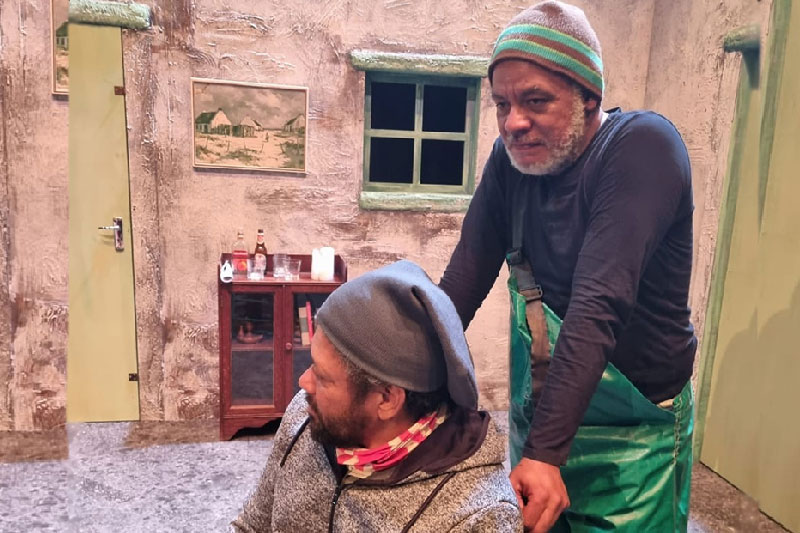
To communicate these scenarios, the team worked with colleagues in theatre and performance, enlisting the expertise of the Rainbow Exchange NPC to create narrative-drive production, As die See Byt.
This staged musical theatre production was created in collaboration with professional and Melkhoutfontein community artists and highlighted the need for interventions to process trauma as one of the hurdles to proactively embracing change, said Jarre.
Professional actor Abduragman Adams agrees, “And I think a real breakthrough here was that in working through the Rainbow Exchange there was this constant interchange between academia, the writer and the community, so that [the production] was written in a way that reflects their reality.”
“There is a life that a production or a documentary can have that a research paper can’t.”
With limited participants because of COVID-19 regulations, it was staged in Melkhoutfontein in December 2020 and involved professional musicians and an ensemble from the local school choir. It also made its way to the Baxter Theatre Centre in Cape Town.
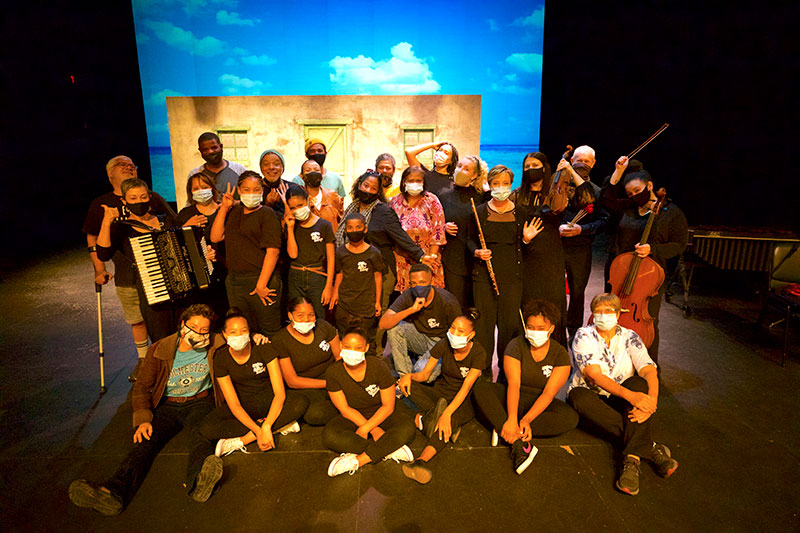
“This performance was intended as a piece of feedback”, said Dr Marieke Norton, SCIFR researcher and MARIS member. “I think it’s also important to note that it’s really sparked some very interesting ideas on how to do research through theatre going forward. And I think we need to embrace that. It’s not a choice of one or the other, it’s about working on a continuum between these two spaces.”
This also led to a documentary on the musical theatre production, filmed in 2021. It is currently being rolled out to other communities in the southern Cape, in line with associated research questions.
“There is a life that a production or a documentary can have that a research paper can’t,” added Dr Norton, who also holds a degree in Film and Media. “Research can seem very one-sided. It should be working much harder to draw the people we research with into our final products, into a life beyond the interview or life beyond the fieldwork.
“There’s a lot to be said for learning and understanding that other people are truly interested in your story and in your community.”
 This work is licensed under a Creative Commons Attribution-NoDerivatives 4.0 International License.
This work is licensed under a Creative Commons Attribution-NoDerivatives 4.0 International License.
Please view the republishing articles page for more information.
Research & innovation





































